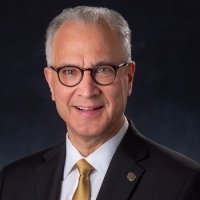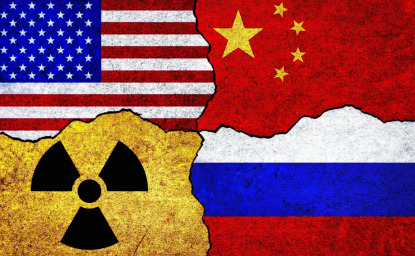Whether defined by the United Nation’s Sustainable Development Goals or by the United States Department of State, achieving today’s global poverty, climate and human rights goals will require a step-change increase in infrastructure investment. This will only be achieved by a greater commitment, along with greater collaboration, among the US, other nations, the Development Financial Institutions (DFIs) they sponsor, and Multilateral Development Banks (MDBs). Not stepping up now risks grave consequences. Enhanced collaboration is required among key players in six groupings.
Among Paris Club, World Bank, IMF, and PRC
Recent years have unleashed seismic shocks that have disrupted the global economy, especially the most vulnerable nations. The pandemic, economic fallout of Russia’s invasion of Ukraine, climate change, a slowdown in world trade, rising protectionism, and tightening monetary policy, are all felt globally, but most acutely in emerging and developing economies. The World Bank’s recent Global Economic Prospects report forecasts that by the end of 2024, economic activity in these economies is expected to be about 5 per cent lower than before the pandemic. In more than one-third of the poorest countries, income per head will be below 2019 levels in 2024.
One of four emerging and developing countries has lost access to international bond markets. Debt relief is urgently needed. This will be more challenging because “bilateral debt owed by low-income countries to the high-income creditor nations comprising the Paris Club has become less than half that owed to non-Paris Club countries,” most notably the Peoples Republic of China (PRC). Achieving debt restructuring will require an unprecedented level of collaboration among the Paris Club, the World Bank, the International Monetary Fund (IMF) and the PRC.
Among DFIs, MDBs and Private Sector
Significant private investment in infrastructure is required to address extreme poverty and to advance climate mitigation and adaptation that disproportionately impact lower-income countries. The World Economic Forum suggests $10 trillion of the globe’s $15 trillion 2021-2040 infrastructure funding gap is in developing countries. Yet the Global Infrastructure Hub’s Investor Monitor reports, “80% of private investment in infrastructure projects occurred in high-income countries and 20% in middle- and low-income countries,” where 80% of the world’s population live. It further states that “in 2021, private investment in infrastructure projects grew by 8.3% in high-income countries, while investment in middle- and low-income countries fell by 8.8%.”
With constrained government budgets, the only way to generate the kind of investment and economic growth required to permanently reduce poverty and address climate adaptation is by mobilizing private-sector capital on a level never before seen. This will require a more deliberate focus on how DFIs and MDBs can efficiently de-risk emerging market investments to crowd in private investment.
Among World Bank Member Countries
Divided priorities among participating countries has led to a slow start in reforms that would bolster lending by MDBs. It will require a sincere commitment to collaboration among member nations to achieve new World Bank President Ajay Banga’s goal “to speed up project-approval times that now stretch for two to three years as it works to address trillion-dollar global challenges such as climate change and inequality.” Those reforms need to be directed toward an approach that not only maximizes the World Bank’s lending capacity, but does so in ways that effectively activate and leverage private investment.
Among Mineral Security Partnership Countries
Accessibility to supplies of critical minerals and rare earth elements are crucial for environmental sustainability goals, national security, and economic prosperity. As nations seek to transition to more sustainable energy sources, demand for raw materials is expected to increase exponentially.
The US Under Secretary for Economic Growth, Energy, and Environment took the lead in forming a Mineral Security Partnership (MSP) with Asia and European allies that seeks to “catalyze investment from governments and the private sector for strategic opportunities —across the full (critical minerals) value chain —that adhere to the highest environmental, social, and governance standards.” The collection of allied nations screened 180 options and “have narrowed those down to 16 pilot projects that are being evaluated by the project working group on the basis of the investment climate, the need for the mineral, and also the potential for investment.”
Achieving these goals will require not just sustained collaboration among MSP nations, but also with the nations in which they collectively invest, local communities and Indigenous populations, and the companies involved. The fact that none of the top 10 mining companies in the world are from the US highlights the need for collaboration.
Among Nations Committed to Digital Future that Empowers, not Controls
Defending the values the US holds dear makes it particularly important to ensure that telecommunications backbones, data centers, smart city functions and other technologies empower citizens rather than enable governments to coerce and control. Data flowing through such equipment must be secure, with their use assured during critical periods.
The heavy reliance on submarine cables for global communications makes their resiliency imperative. While the US has redundancy in cable access, many of its allies do not. In addition to seeking resilience through redundancy of cable routes, nations are exploring alternative communications capacity in space. With satellite services becoming an increasingly viable alternative to ground-based communications, the ground stations that ensure access to space for communications will grow in importance. As conduits of a tremendous amount of information, it is important that submarine cables and satellite communications be made and owned by trusted sources.
Achieving a secure digital future that empowers rather than controls will require like-minded nations collaborating to offer competitive alternatives to highly subsidized competitors for communications and smart city functions.
Among Those Committed to Free and Open Flow of Commerce
All nations should make it a priority to ensure the channels of transportation and the sea- and air- ports through which commerce flows cannot be manipulated to a country’s disadvantage or disrupted during periods of heightened geopolitical tension. Ownership of ports by foreign state owned enterprises from rival nations raises security concerns. Port ownership can accentuate concern about submarine communications cables vital to modern day commerce. The last mile of the cable and its landing station, the most vulnerable parts, are often located near seaports. There are also airports where a disruption of functionality would significantly disrupt commerce or mobilization during periods of tension.
With none of the world’s top 10 shippers or top 10 seaport operators or top 17 airport operators are American, collaboration will be vital. Mapping the strategic advantages of each nation’s industrial base against investment priorities and devising collaboration strategies to collectively harness those advantages could elevate joint efforts.
Achieving these global priorities will require a step-change increase in infrastructure investment. These can only be accomplished by public and private actors working closely together. Pressing global needs require that collaboration be the order of the day.
This piece contributed to a discussion co-hosted with the USCIB Foundation.
Author


Wahba Institute for Strategic Competition
The Wahba Institute for Strategic Competition works to shape conversations and inspire meaningful action to strengthen technology, trade, infrastructure, and energy as part of American economic and global leadership that benefits the nation and the world. Read more

Explore More
Browse Insights & Analysis
US Inaction Is Ceding the Global Nuclear Market to China and Russia

Promoting Convergence in US-Brazil Relations


